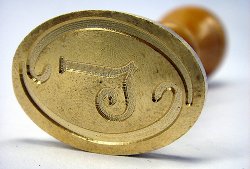Six 印象 structures and uses in Mandarin
[caption id="attachment_2267” align="alignright” caption="Making an impression (印象)"] [/caption]
[/caption]
印象 is usually translated as ‘impression’, and it can be used in quite a wide variety of ways:
- to have an impression of something
- to give someone an impression
- to be impressive
- to fail to realise or remember
- to have a stereotype
- Impressionism
Here’s a list of common 印象 structures and uses. Note that 印象 is not ‘impression’ in the sense ' imitation’; that’s 滑稽模仿.
对 [noun] 的印象
This is a very common 印象 structure. It’s the easiest way to express your impression of something or someone. A basic sentence pattern is:
[noun A] 对 [noun B] 的印象是…
Meaning something like “A’s impression of B is…”
Examples:
你对中国的印象是什么? Nǐ duì Zhōngguó de yìnxiàng shì shénme? “What’s your impression of China?”
我对美国的印象挺好的。 Wǒ duìměiguó de yìnxiàng tǐnghǎode. “My impression of America is very good.”
你对他的印象怎么样? Nǐ duì tā de yìnxiàng zěnmeyàng? “How’s your impression of that person?”
我对这个政府的印象是,他们需要强一点儿的经济政策,要不然将来会遇到很大的问题。 Wǒ duì zhège zhèngfǔ de yìnxiàng shì , tāmen xūyào qiáng yīdiǎnr de jīngjìzhèngcè , yàoburán jiānglái huì yù dào hěn dà de wèntí. “My impression of this government is that they need a more forceful economic policy, otherwise they’ll encounter large problems in the future.”
我对那天的印象很深刻。 Wǒ duì nà tiān de yìnxiàng hěn shēnkè. “That day left a deep impression on me.” Lit: "My impression of that day is deep."
[noun A] 给 [noun B] 留下 [adj] 的印象
This structure can be used to say things like ‘He left a good impression on them’ or ‘You’ve given me a good impression’.
Examples:
那家饭馆儿的服务员给我们留下很好的印象。 Nà jiā fànguǎn ér de fúwùyuán gěi wǒmen liúxià hěn hǎo de yìnxiàng. “The staff in that restaurant gave us a very good impression.”
那个没有礼貌的人给我留下很坏的印象了。 Nà ge méiyǒu lǐmào de rén gěi wǒ liúxià hěn huài de yìnxiàng le. “That impolite person left a bad impression on me.”
你说的话给我留下了很深刻的印象。 Nǐ shuō dehuà gěi wǒ liúxià le hěn shēnkèyìnxiàng. “What you said left a deep impression on me.”
深刻印象
This phrase is often translated as ‘a deep impression’, but it can also cover the meaning of ‘impressive’. It can be used in any of the structures listed above.
Examples:
我对她有很深刻的印象。 Wǒ duì tā yǒu hěn shēnkè de yìnxiàng. “I find her very impressive.”
你的简历给我留下了很深刻的印象。 Nǐ de jiǎn lì gěi wǒ liúxià le hěn shēnkè de yìnxiàng. “Your CV has really impressed me.”
没有印象
You sometimes see 印象 used to express that someone didn’t realise something, or forgot about it. This is phrased ‘没有印象’ - ‘to not have an impression’.
Example:
A: 我们今天出门去公园呢? B: 啊?我们说过要去公园吗?我没有印象。* * A: Wǒmen jīntiān chūmén qù gōngyuán ne ? B: A ? Wǒmen shuō guò yào qù gōngyuán ma ? Wǒ méiyǒu yìnxiàng. A: Aren’t we going out to to the park today? B: Eh? We said we’d go to the park? I didn’t realise.
我对这件事完全没有印象。 Wǒ duì zhè jiàn shì wánquán méiyǒu yìnxiàng. “I had no idea about that.”
刻板印象
This is literally ‘inflexible impression’, and means ‘stereotype’.
Examples:
那只是个对法国人的刻板印象。 Nà zhǐshì gè duì fàguó rén de kèbǎn yìnxiàng. “That’s just a stereotype of French people.”
不少人有对同志的刻板印象。 Bù shǎo rén yǒu duì tóngzhì de kèbǎn yìnxiàng. “Many people have stereotypes of gay people.”
印象派
印象 also crops up in words for Impressionism: 印象派 and 印象主义.
